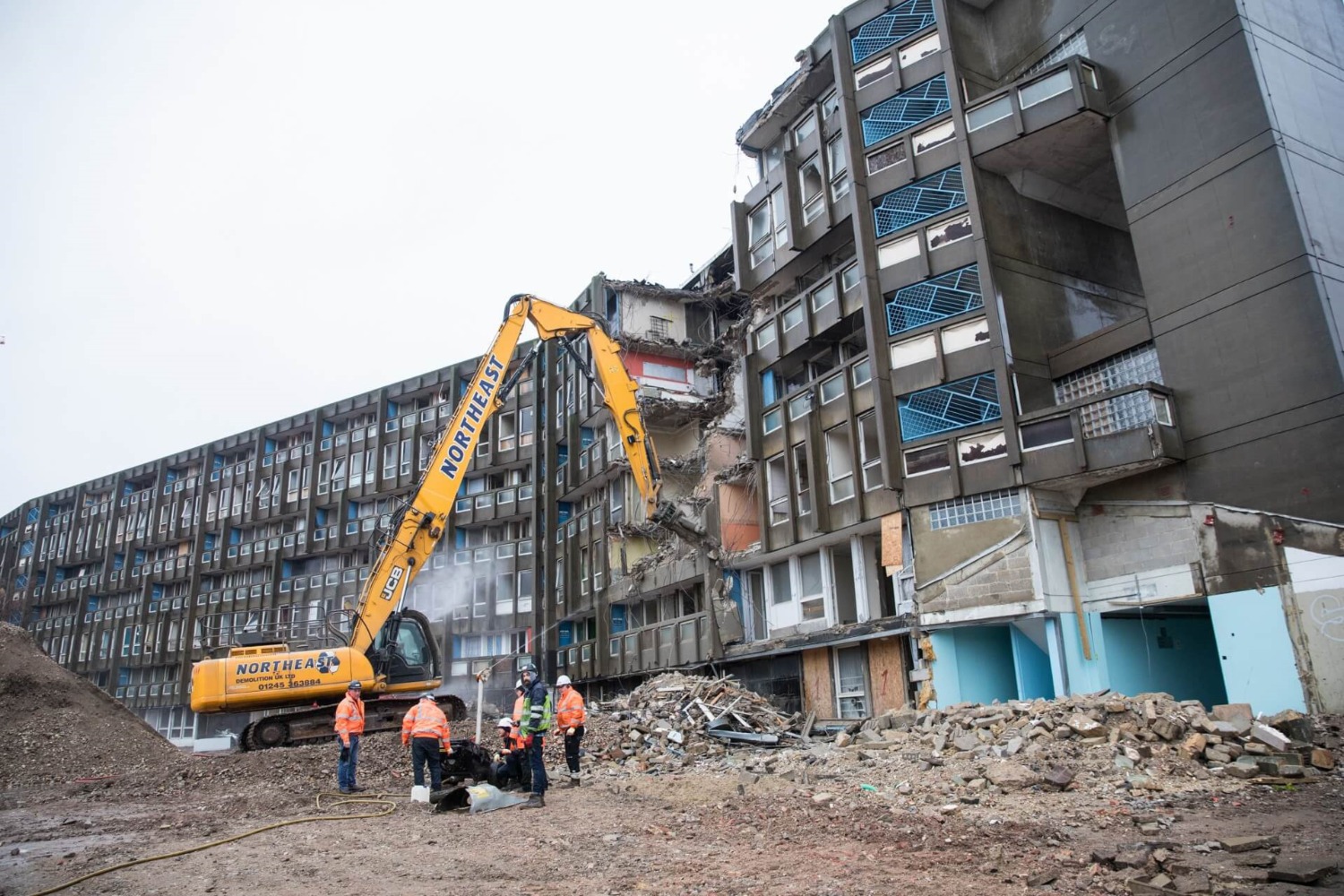The demolition of council estates is driven more by profit than the need to provide housing affordability, security and safety for local residents, new research from The University of Manchester has concluded.
In an article published by the University’s sector leading policy engagement institute, Policy@Manchester, Dr Nick Thoburn argues that “demolition brings about social and individual cost, uprooting residents from support networks and jobs, fragmenting communities, and reducing the supply of affordable, safe, and secure housing.”
And he warns that “demolition also has an environmental impact which is hidden behind claims that net zero carbon targets will be achieved through ‘green’ replacement housing.”
But Dr Thoburn adds: “Yet central and local governments, housing associations, and developers still proceed apace with estate demolition and rebuild. The common justification is that residents share the dominant mood and opinion about council estates. However, our research project with residents at East London’s Robin Hood Gardens found this not to be the case.”
The research established that these residents were “almost entirely absent from the prominent public debate about the estate’s merits, failings and impending demolition.” Further, they “despaired of the lack of investment in and maintenance of the estate” with the combined neglect and disrepair often becoming “‘managed decline’ where councils leverage long-term disinvestment for demolition.”
Dr Thoburn writes, “At Robin Hood Gardens, residents were aware and critical of this path to demolition, which one resident described to us as the ‘social cleansing’ of their neighbourhood. Their views of the estate’s future were complex, sometimes coloured by the seeming inevitability of demolition that is produced by managed decline. But in the main, residents wanted refurbishment not demolition, in an estate whose architecture and homes were tremendously popular.”
Based on the research findings, two policy solutions are suggested.
First, “repair, refurbishment, and retrofit of existing social housing for existing residents should be the gold standard.” As a result, “demolition should not be the favoured option but the very last resort, an option institutionally disapproved of for its damaging impact on residents, communities, and the environment, and used only when buildings are proven to be structurally unsound.”
Second, Dr Thoburn argues, “residents should be consulted meaningfully and fairly.” He writes, “Since 2018, London local authorities are required to obtain a majority in a formal ballot of residents for any redevelopment proposal involving whole or partial estate demolition, an opportunity refused to residents of Robin Hood Gardens. This is progress, and it should be extended to all parts of the country. But the ballot process is stacked in favour of demolition and must be overhauled.”
Dr Thoburn’s article, “Razing the neighbourhood: consequences and alternatives to council estate demolition,” is available to read on the Policy@Manchester website.





